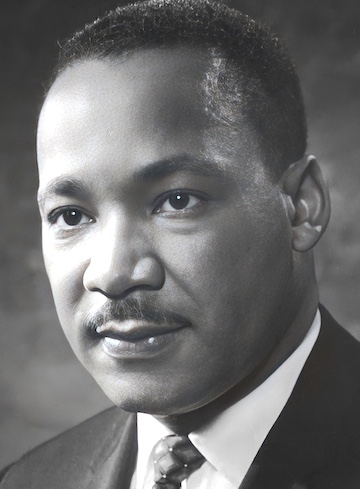January 15
Molière

On this date in 1622, playwright and poet Jean-Baptiste Poquelin, who adopted the stage name Molière as an actor, was born in Paris. His father was an upholsterer/valet to King Louis XIII. Molière studied philosophy in college, started a Parisian acting troupe and toured the provinces with it for many years, acting, directing and writing.
As a favorite of King Louis XIV, he produced a succession of 12 popular comedies still being performed, including “The School for Wives” (1662), “Don Juan” (1665), “Le Misanthrope” (1666) and “Tartuffe” (1667), all irreverent and increasingly irreligious. “Tartuffe,” a satire on religiosity, originally featured a hypocritical priest. Although Molière rewrote Tartuffe’s profession to avoid scandal, some religious officials nevertheless called for him to be burned alive as punishment for his impiety. He would claim he was attacking hypocrisy more than religion.
He married actress Armande Bejart when she was 19 and they had a daughter, Esprit-Madeleine, in 1665. Becoming ill while playing the lead in his play “Le Malade imaginaire” (“The Imaginary Invalid”), Molière insisted on finishing the show, after which he died. He had long suffered from tuberculosis. The church refused to bury him in sanctified ground because he had not received the last rites and did not renounce his profession as an actor before his death. When the king intervened, the archbishop of Paris allowed him to be buried only after sunset among the suicides’ and paupers’ graves with no requiem Masses permitted in the church. (D. 1673)
“Though living in an age of reason, he had the good sense not to proselytize but rather to animate the absurd …”
— Encyclopedia Britannica entry on Molière
Martin Luther King Jr.

On this date in 1929, Martin Luther King Jr., was born. The civil rights leader, Baptist minister and founder of the Southern Christian Leadership Conference believed in a strict separation of church and state. Although his many speeches are peppered with references to Jesus and God and often depend for the force of their authority upon “the natural law of God,” King knew that the religious status quo tended to support segregation. The Martin Luther King Jr. federal holiday is observed on the third Monday in January.
In a sermon known as “Paul’s Letter to American Christians” (delivered at Dexter Avenue Baptist Church, Montgomery, Ala., Nov. 4, 1956), King said: “You must face the tragic fact that when you stand at 11 o’clock on Sunday morning to sing ‘All Hail the Power of Jesus Name’ and ‘Dear Lord and Father of all Mankind,’ you stand in the most segregated hour of Christian America. They tell me that there is more integration in the entertaining world and other secular agencies than there is in the Christian church. How appalling that is.” (D. April 4, 1968)
“In the midst of blatant injustices inflicted upon the Negro, I have watched white churches stand on the sideline and merely mouth pious irrelevancies and sanctimonious trivialities.”
— Martin Luther King Jr., "Letter from Birmingham Jail" addressed to "My Dear Fellow Clergymen" for criticizing the civil rights movement (April 16, 1963)
